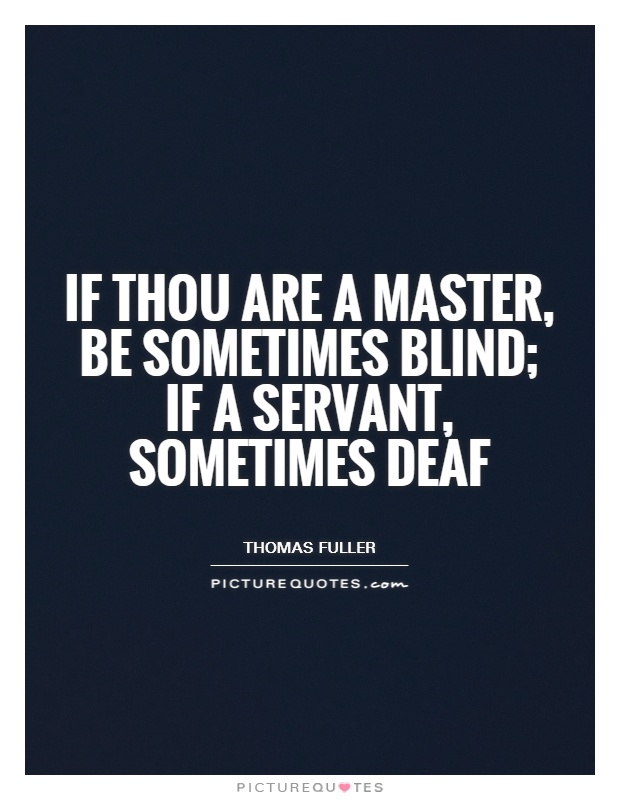If thou are a master, be sometimes blind; if a servant, sometimes deaf

If thou are a master, be sometimes blind; if a servant, sometimes deaf
Thomas Fuller, a renowned English churchman and historian, is often quoted for his wise and insightful sayings. One of his most famous quotes is, “If thou are a master, be sometimes blind; if a servant, sometimes deaf.” This quote speaks to the importance of understanding and empathy in relationships, particularly between those in positions of power and those who serve them.In the context of this quote, Fuller is advising masters to sometimes turn a blind eye to the faults or shortcomings of their servants. This does not mean ignoring serious issues or neglecting one’s responsibilities as a leader, but rather showing compassion and understanding towards those who may not always meet expectations. By being “blind” to minor mistakes or imperfections, masters can create a more positive and supportive work environment for their servants.
On the other hand, Fuller also advises servants to sometimes be “deaf” to the criticisms or demands of their masters. This does not mean disregarding important instructions or failing to fulfill one’s duties, but rather learning to filter out unnecessary negativity or harsh words. By being “deaf” to unnecessary criticism, servants can maintain their self-esteem and focus on their work without being discouraged by constant fault-finding.
Overall, Fuller’s quote emphasizes the importance of empathy, understanding, and mutual respect in relationships between masters and servants. It encourages both parties to show kindness and patience towards each other, recognizing that everyone has their strengths and weaknesses. By practicing this philosophy, masters can create a more harmonious and productive workplace, while servants can maintain their dignity and self-worth in the face of adversity.












 Friendship Quotes
Friendship Quotes Love Quotes
Love Quotes Life Quotes
Life Quotes Funny Quotes
Funny Quotes Motivational Quotes
Motivational Quotes Inspirational Quotes
Inspirational Quotes